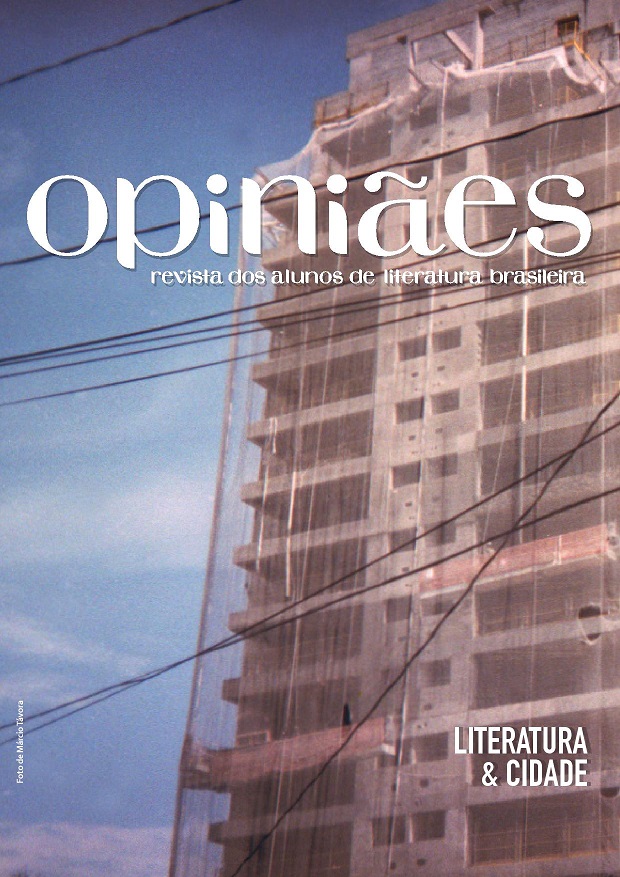The Time which Died Inside Myself - Convergence of Manaus City and Nael, Narrator in The Brothers
DOI:
https://doi.org/10.11606/issn.2525-8133.opiniaes.2016.124623Keywords:
postmodernity, city, “The Brothers”, Milton Hatoum.Abstract
This article analyzes relationships of confluence between the Brazilian city of Manaus and the narrator of Milton Hatoum’s The Brothers, Nael, towards the social changes that occurred between 1920 and 1960 with the industrialization and the commodification of cultural goods. According to Fredric Jameson (1992, 1997), aesthetic transformations of cultural goods took place during this period, affecting the relationships that the latter establish with individuals. For the author, late capitalism can be considered a cause of the changes that entail the cultural-historical moment called "postmodernity". Thus, considering that in this period Manaus undergoes a thirst for "development" that progressively effaces its own History with progress and policies that favor a certain social sector over the other, we intend to analyze the confluence between the narrator and urban spaces, since we consider that Nael not only seeks knowledge about his origin (identity), but also struggles for the political resistance of the spatiality in which he acts as a subject, preserving memories of what makes him live: the house and the city.Downloads
Download data is not yet available.
Downloads
Published
2016-12-21
Issue
Section
Dossiê
License
A revista Opiniães não exerce cobrança pelas contribuições recebidas, garantindo o compartilhamento universal de suas publicações. Os autores mantêm os direitos autorais sobre os textos originais e inéditos que disponibilizarem e concedem à revista o direito de primeira publicação, com o trabalho simultaneamente licenciado sob a Licença Creative Commons Attribution que permite o compartilhamento do trabalho com reconhecimento da autoria e publicação inicial nesta revista.
How to Cite
Pereira, C. M. de S. (2016). The Time which Died Inside Myself - Convergence of Manaus City and Nael, Narrator in The Brothers. Opiniães, 5(9), 110-117. https://doi.org/10.11606/issn.2525-8133.opiniaes.2016.124623



